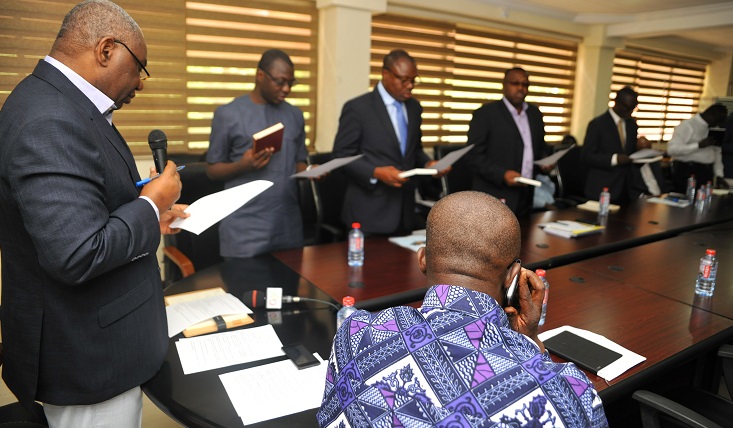
Gas Master Plan to be rolled out
A comprehensive Gas Master Plan (GMP) is being rolled out to develop gas infrastructure, prioritise the use of the country’s gas resource and ensure the security of energy supply.
Advertisement
When implemented, the plan will provide modalities for the efficient management and safe delivery of liquefied petroleum gas (LPG) to homes and industries.
The implementation of the GMP comes at a time the country is still searching for ways to control the loss of lives and properties through explosions at gas refill plants.
A nine-member committee to oversee the effective implementation of the GMP was inaugurated in Accra yesterday.
It is chaired by Dr Mohammed Amin Adam, the Deputy Minister of Energy in charge of the Petroleum Sector.
Other members are the chief executive officers (CEOs) of key agencies under the Ministry of Energy, such as the Ghana National Petroleum Corporation (GNPC), the Petroleum Commission, the National Petroleum Authority (NPA), the Ghana National Gas Company (Ghana Gas), the Bulk Oil Storage and Transportation (BOST) Company and the Tema Oil Refinery (TOR).
GMP
The GMP outlines gas utilisation priorities that encompass power generation, cement production, industrial co-generation, transportation and petrochemical synthesis.
Processes for the development of the GMP started in 2014, while the final document was submitted to the Cabinet on June 9, 2016.
Other Trending Stories
Inaugurating the committee, the Minister of Energy, Mr Boakye Agyarko, said as the GMP inched towards the implementation stage, outstanding issues, including gas pricing, institutional mandates and roles, appropriate financial structures and private sector participation, ought to be addressed.
“The GMP is only a working document and will require periodic updates and revision. So it is the duty of the committee to ensure that both the plans and the enabling drivers along the entire value chain are implemented effectively for the development and sustainability of the country’s gas industry,” he said.
Government’s vision
Mr Agyarko said in line with the government’s vision to build a strong oil and gas sector, emphasis would be placed on creating an enabling environment that would increase the production of the resource and attract investments.
He said efforts would be made to increase the participation of locals in the oil and gas industry and also enhance value addition along the oil and gas value chain.
Reports from Daily Graphic archives from 2007 to 2014 indicate that while 39 people died, 186 people sustained various degrees of injury in the 11 reported accidents involving LPG tankers and LPG fuelling stations and domestic calamities.
Statistics
Of the 11 accidents, five involved industrial settings — gas stations, fuel stations and a fuel dump, while three were gas tanker crashes, with the remaining three being domestic accidents.
This shows that more accidents were recorded in industrial settings than in domestic, the reason the public is calling on the relevant state institutions to take a second look at the zoning areas for LPG and fuel stations.
Even though the Environmental Protection Agency (EPA), the NPA, the Ghana National Fire Service (GNFS) and other regulators have taken some action against the illegal siting and operation of LPG plants, some industry players still flout the law.
The GMP will provide a comprehensive road map that will address that challenge in the long run.




